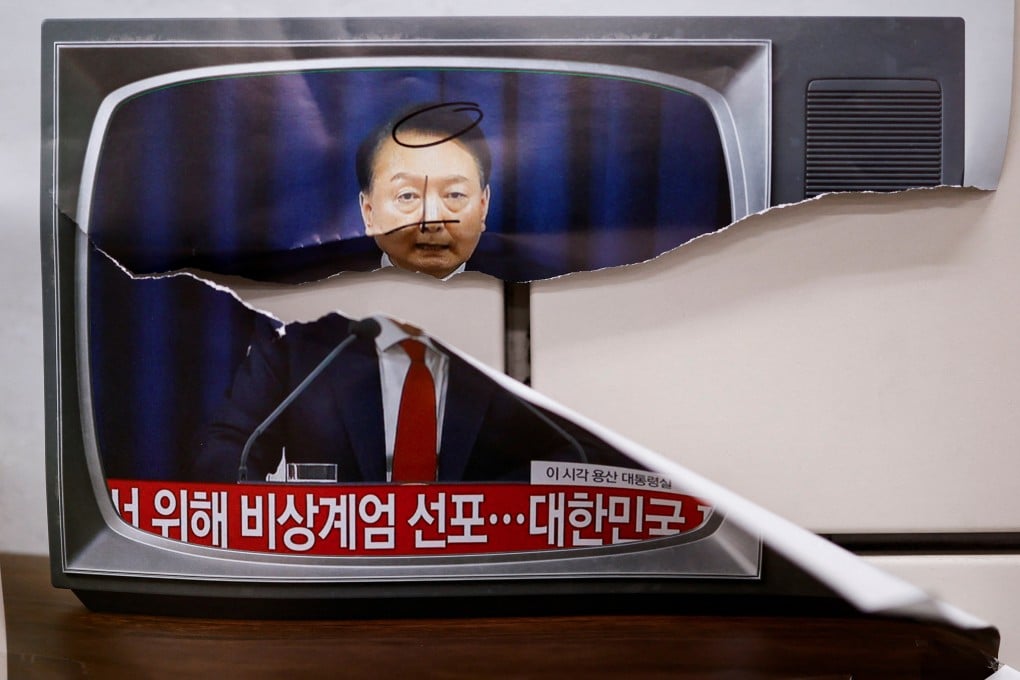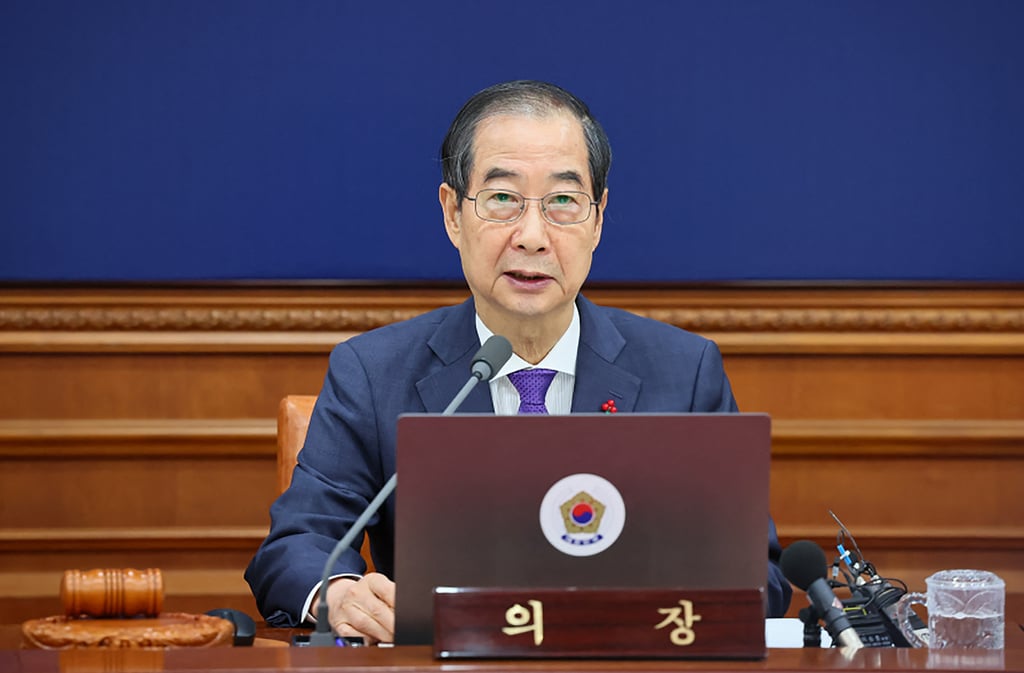Advertisement
In South Korea’s ‘power vacuum’, foreign policy uncertainty abounds
The impeachment of President Yoon Suk-yeol leaves an interim leader with a ‘tainted cabinet’ to grapple with rising diplomatic challenges
Reading Time:4 minutes
Why you can trust SCMP
1

The impeachment of South Korean President Yoon Suk-yeol has cast doubt over the nation’s ability to navigate major foreign policy hurdles, as an interim leader with limited powers must now grapple with North Korea’s provocations and mounting diplomatic challenges.
Advertisement
On Saturday, Yoon was impeached by South Korea’s parliament over his short-lived attempt to impose martial law that plunged the country into its worst political turmoil in years.
If the Constitutional Court upholds Yoon’s removal, new elections must be held within two months. The court, which has 180 days from the impeachment vote to make its decision, has set its first public hearing for December 27.
Prime Minister Han Duck-soo is serving as interim leader in Yoon’s place.
Immediately after the National Assembly passed the impeachment motion, South Korea’s foreign ministry contacted senior diplomats from the embassies of the United States, Japan, and China to confirm that Seoul’s foreign policy direction would remain unchanged.

Foreign Minister Cho Tae-yul also met US Ambassador Philip Goldberg on Saturday evening to discuss the latest political developments, the ministry said.

Advertisement